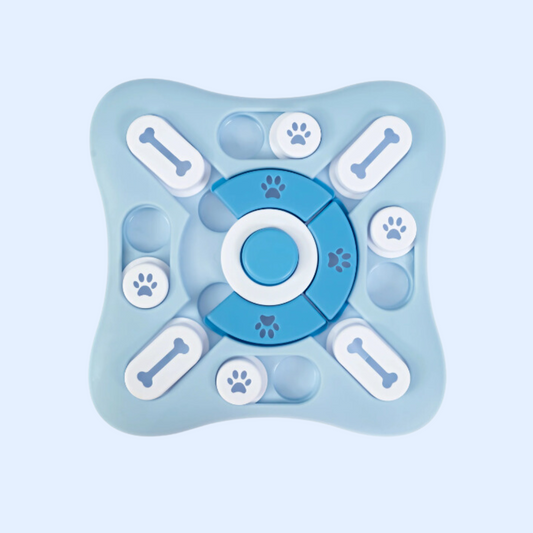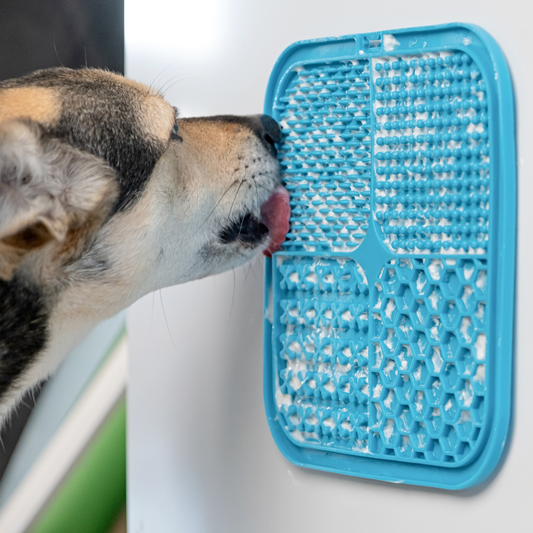When you bring a puppy home, your life changes dramatically. From training to care, everything revolves around the well-being of your new companion. One of the most undervalued aspects of puppy well-being is sleep. Just like human babies, puppies need plenty of sleep to grow and develop healthily. In this comprehensive blog post, we explain why sleep is so important for puppies, how much sleep they actually need, and how to ensure your puppy gets enough rest to thrive.
Why is sleep important for puppies?
Growth and physical development
Sleep is crucial for a puppy's physical development. While they sleep, their bodies produce growth hormones, which are responsible for the development of bones, muscles, and other tissues. Without sufficient sleep, this process can be disrupted, leading to growth disorders or other health problems. Especially during the first few months of life, a puppy grows rapidly, and this growth must be supported by sufficient rest.
Brain development and learning
Not only a puppy's body but also its brain develops during sleep. Puppies absorb a wealth of new information every day—from their environment, their owners, other animals, and scents to learning new behaviors and commands. While they sleep, their brain processes this new information and creates new neural connections. This process, called synaptic plasticity, is essential for learning and remembering new experiences. Without enough sleep, puppies may struggle to retain and learn new information.
Support of the immune system
Just like in humans, sleep plays a vital role in puppies' immune systems. During sleep, the body produces cytokines, proteins that fight infection and help regulate the immune response. Puppies who don't get enough sleep can become more susceptible to illness and infection because their immune systems don't have enough time to repair and strengthen themselves.
Emotional well-being and stress regulation
Just like people, puppies can become irritable, anxious, and stressed when they don't get enough sleep. Adequate sleep helps puppies stay emotionally stable and better handle new situations and challenges. A well-rested puppy is happier, calmer, and better able to learn. However, sleep deprivation can make your puppy more anxious or even aggressive. Therefore, it's important that your dog gets regular rest to keep their emotions balanced.
How much sleep does a puppy need?
Unlike adult dogs, puppies need much more sleep. Puppies generally sleep between 18 and 20 hours a day. This may seem like a lot, but it's essential to support their rapid growth and intensive brain development. Puppies often sleep in short bursts throughout the day, interspersed with periods of activity and play. As they get older, their sleep needs gradually decrease, but until then, it's important to ensure your puppy gets enough time to rest.
Tips to ensure your puppy gets enough sleep
Create a quiet place to sleep
A quiet and comfortable environment is essential for a good night's sleep. Make sure your puppy has a designated space, away from crowds, noise, and other distractions. This could be a crate or a dog bed in a quiet room. You can offer multiple resting and sleeping spots so your puppy can choose where they feel most comfortable at any given moment.
Set a consistent sleep schedule
Puppies thrive on routine. By establishing a consistent sleep schedule, you'll help your puppy establish a regular rest period. A good rule of thumb is to let your puppy wake up for about an hour and then let them nap again. This rhythm not only helps your puppy get enough rest but also prevents them from becoming overtired.
Limit excitement before bed
Just like people, puppies need time to unwind before they can sleep. Therefore, avoid intense play sessions or other exciting activities right before bedtime. Instead, offer calming activities like chew toys. Chewing has a relaxing effect and can help your puppy fall asleep more easily.
Provide adequate physical and mental stimulation during the day
A puppy that gets enough exercise and mental stimulation during the day will sleep better at night. Take regular walks, play games, and exercise your puppy to keep them physically and mentally challenged. Be careful not to make the activities too intense, as excessive stimulation can make your puppy too tired to sleep well. Short, positive activities are most effective.
Pay attention to your puppy's sleep signals
A tired puppy shows clear signs that he needs to rest. Yawning, slow movements, and difficulty focusing are signs that it's time for a nap. It's important to recognize these signals and give your puppy the opportunity to rest when he needs it.
Conclusion
Sleep is invaluable for the health and well-being of puppies. It plays a vital role in their growth, brain development, immune system, and emotional stability. By creating a calm environment, following a consistent sleep schedule, and providing your puppy with plenty of stimulation during the day, you can ensure your puppy gets the rest they need. A well-rested puppy is a happy puppy, ready to learn, grow, and enjoy all the new experiences that come their way. So, take good care of your puppy's rest, because the right amount of sleep lays the foundation for a healthy and happy life!
Also read:The best food for your puppy - everything you need to know.


